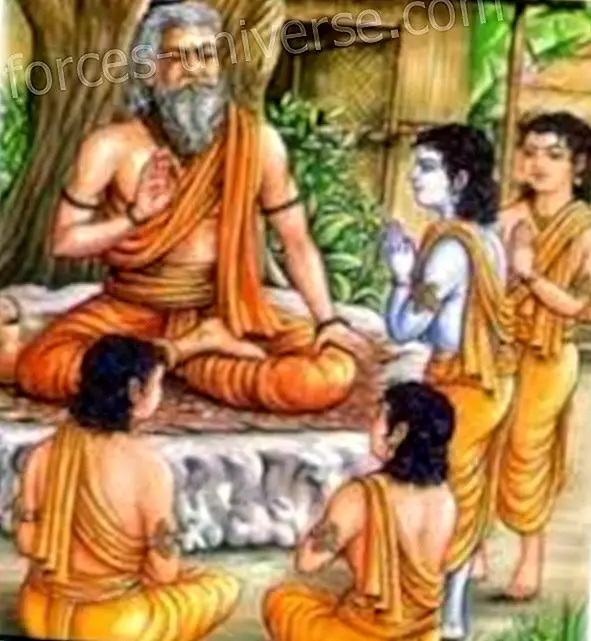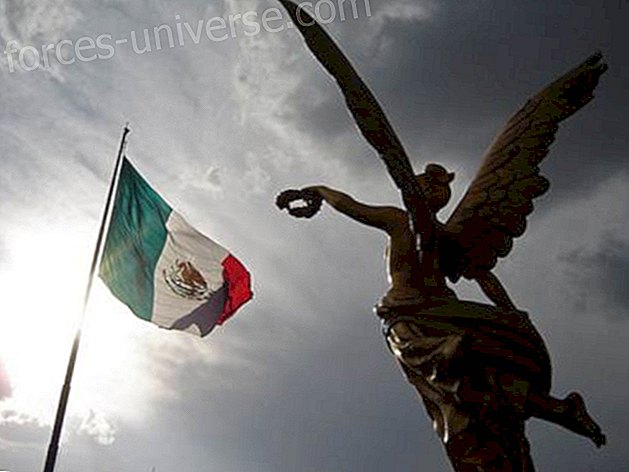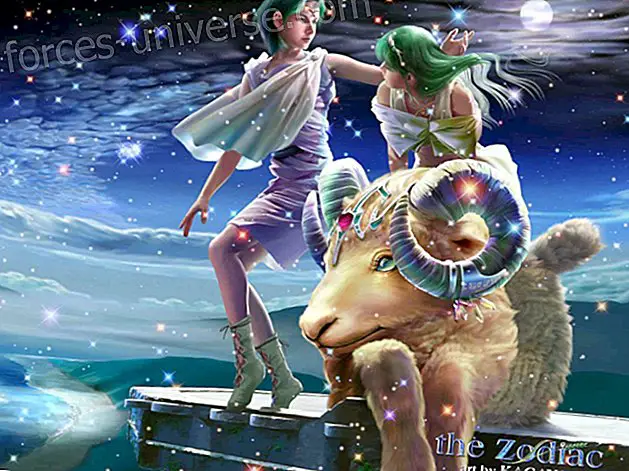
For Alice Bailey there are seven human tendencies and instincts with which the education system has to work. It proposes the interaction of the three lines of thought (science, philosophy and religion) to unravel the mysteries of the Universe, Life and the birth of the Human Being.
For Edgar Morin there are seven fundamental knowledge that education of this century should deal with in any society and in any culture without any exception, nor rejection according to the uses and rules of each society and each culture.
Howard Gardner proposes seven understandings that pre-university education has to cover, which leads us to clarify the way to make the transition between instinct and intuition and knowledge to wisdom, the first is achieved through the intellect and the second through understanding, so we have the elements of a complete theory:
Subjective planning: theory of the creative development of the individual, from instinct to intuition.
Objective planning: theory of a good society so that human beings live there. From knowledge to wisdom.
Alice Bailey: Trends | Edgar Morin: Knowledge | Howard Gardner: Understanding |
Will or purpose Love-wisdom Active intelligence Harmony in the conflict Knowledge Devotion Order | World of ideas. Systemic thinking Human condition Earthly identity Face uncertainties Comprehension Ethics | The globalization The Intradisciplinary The transdisciplinary Collaborative work Respect for tradition Cross-cultural sensitivity Tolerance Promotion |
The broad purpose of the new learning culture is to shed light on four fundamental questions regarding human existence.
- What is the human?
- What kind of cosmos does the human being inhabit?
- By what evolutionary processes did the human species emerge from the womb of nature?
- What would be the best society for the progressive self-evolution of the human being?
Prior understanding of other understandings consists of the teaching-learning relationship. The process of the expansion of consciousness can be described in terms of energy: Knowledge-wisdom is synonymous with force-energy. Applied Knowledge is Force that expresses itself, Applied Wisdom is Energy in activity. Understanding is that lever that applies force, that cable that conducts energy. The teaching-learning process, in reality, consists in the emanation of a certain energy with a certain quality, which once the apprentice receives it through its normal mechanisms of perception, begins a transformation derived from the interaction between the incoming energy and the own energy of the disciple. This transformation manifests itself in human beings as a crisis of concepts, a crisis between what they came to believe as valid and what they now begin to accept as the true interpretation of life. .
This article aims to expose central problems that remain completely ignored or forgotten and that need to be resolved during the 21st century.
EDUCATION IN ITS THREE LEVELS | ||
PRIMARY From 4 to 14 years. Civilization Rights Instinct development Collaboration Participation | HIGH SCHOOL 15 to 21 years old Culture Disciplines Intellect Training Understanding Purpose | UNIVERSITY From 22 to 28 years. Developing Performance Wake up from intuition Compassion Planning |
1. Understanding constructivism
 Problem : Error and illusion parasitize the human mind from the appearance of homo sapiens.
Problem : Error and illusion parasitize the human mind from the appearance of homo sapiens.
Objective : Teach for the understanding of possible worlds.
The transmission of knowledge and skills to the next generation, the process of education in formal and informal frameworks, is inseparably linked to the emergence of Homo sapien. The human brain integrates in it its three parts, reptile, mammal and human involving the well-known conflicts between impulsivity, heart and reason. Printing is the brand with no return imposed by the first experiences of the young animal.
The human mind is an emergence that is born and affirmed in the brain-culture relationship. Once the mind has emerged she intervenes in the brain functioning with retroactive effect. Cultural impression marks humans from birth, first with the stamp of family culture, then with that of school culture, and then with university or professional performance. It will be evident that if we have a good mental team and a solid cultural training, then there will be a balanced sense of proportion, interpretative capacity and the patience to wait until the correct understanding and a happy sense of good humor are developed.
Man must learn to recognize that his chosen school of thought, particular vocation, special occupation in life and his personal tendency, are only part of a greater whole, and his problem lies in consciously integrating his small life activity into a world activity He becomes aware of it through the sensory and receiving plate of the mind in its three aspects: concrete, practical and abstract. The first indication that a disciple has managed to close the gap between the three aspects of the mind is his ability to recognize, apply and register new ideas. These flow from pure reason to the abstract mind, applied by the practical mind. They can be recorded by the concrete mind if a good mental model is being built, and translated into more easily recognizable ideals.
The first thing the disciple has to learn is the nature of the ideas and to differentiate them from the mental forms with which he comes into contact. The main task of the Master is to help the disciple develop intuition and, at the same time, maintain mental perception in an active and healthy state.
Nelson Goodman defends a constructivist philosophy on which teaching for understanding is based, his claim is that we build worlds with the help of symbolic systems acting on a "given world" that we take for granted. The study of symbols leads to the awakening of intuition, intuition is synthetic understanding.
Love and understanding are two of the qualities or aspects of intuition, and can be summed up by the word universality or sense of universal uniqueness, we call this enlightenment in the absence of a more appropriate word. All knowledge is a form of light, for it sheds light in the areas of perception of which we have been unconscious until now. All wisdom is a form of light, because it reveals to us the world of meanings that is behind the external form. All understanding is an evocation of light, because it makes us realize, or be aware of the causes that produce the external forms that surround us (including ours) and that condition the world of meanings of which they are the expression.
The development of scientific knowledge has been a powerful means of detecting errors and fighting illusions, however, the paradigms that control science can develop illusions and no scientific theory is immune forever against error. Education must be dedicated to the identification of the origins of errors, illusions and blindness. Acquiring knowledge and transmuting it in wisdom with the help of understanding, thus reaching full illumination, is the main purpose of education.
LEVEL | TROUBLE | YOGA | OUTCOME | POWER OF |
Vital | Matrix | Karma | Inspiration | Transmission |
Emotional | Mirage | Raja | illumination | Transformation |
Mental | Delusion | Agni | Intuition | Transfiguration |
Spiritual | Shadow | CAT | Intention | Transcendence |
2. Understanding the intradisciplinary.
 Problem : Fragmented knowledge of disciplines prevents seeing the link between the parts and the whole.
Problem : Fragmented knowledge of disciplines prevents seeing the link between the parts and the whole.
Objective : Teach systemic thinking.
The global is more than the context, it is the set that contains diverse parts linked inter-retroactively or organizationally. In that way, a society is more than a context, it is an organizing whole of which we are part. Planet Earth is more than a context, it is a whole organizer and disorganizer of which we are part. The whole has qualities or properties that would not be found in the parts if they were separated from each other and certain qualities or properties of the parts can be inhibited by the forces that leave the whole.
Relevant knowledge must face complexity. Complexus means what is woven together; indeed, there is complexity when the different elements that constitute a whole (such as the economic, the political, the sociological, the psychological, the affective, the mythological) are inseparable and that there is an interdependent, interactive and interretroactive fabric between the object of knowledge and its context, the parts and the whole, the whole and the parts, the parts between them. Therefore, complexity is the union between unity and multiplicity. The developments of our planetary era face us increasingly and in an increasingly unavoidable way to the challenges of complexity. Consequently, education must promote a "general intelligence" apt to refer, in a multidimensional way, to the complex, to the context in a global conception.
3. Understanding the transdisciplinary
 Problem : The disintegration of human dimensions makes it impossible to understand the human.
Problem : The disintegration of human dimensions makes it impossible to understand the human.
Objective : Teach unity in diversity.
The importance of hominization is capital for the education of the human condition because it shows us how animality and humanity together constitute our human condition. Hominization leads to a new beginning. The hominid is humanized. From there, the concept of man has a double principle: a biophysical and a psycho-socio-cultural principle, both principles refer to each other.
Man is thus a fully biological being, but if he did not fully dispose of culture he would be a primate of the lowest rank. Culture accumulates in itself what is preserved, transmitted, learned; She has rules and principles of acquisition.
The culture is constituted by the set of knowledge, know-how, rules, norms, interdictions, strategies, beliefs, ideas, values, myths that are transmitted from generation to generation, reproduced in each individual, controls the existence of society and maintains the psychological and social complexity. There is no human, archaic or modern society that has no culture, but each culture is unique. Thus, there is always culture in cultures, but culture does not exist except through cultures.
Techniques can migrate from one culture to another, as was the case with the wheel, the team, the compass, the printing press; or also that of certain religious beliefs, then secular ideas that having been born in a singular culture could be universalized. But there is in each culture a specific capital of beliefs, ideas, values, myths and particularly those that bind a unique community to their ancestors, their traditions, their dead.
Those who see the diversity of cultures tend to minimize or hide human unity; those who see human unity tend to consider the diversity of cultures as secondary. It is pertinent, on the other hand, to conceive a unit that ensures and favors diversity, a diversity that is inscribed in a unit.
4. Understanding the human condition.
 Problem : Being subjected to the technosphere or knowing how to live in symbiosis with it.
Problem : Being subjected to the technosphere or knowing how to live in symbiosis with it.
Objective : Teach the earthly identity.
Learn to live, to share, to communicate, to commune; It is what we only learn in and through singular cultures. We now need to learn to be, live, share, commune as humans on Planet Earth. Not only be of a culture but also be inhabitants of the Earth. We must dedicate ourselves not only to dominate but to condition, improve, understand. We must enroll in us:
- The anthropological awareness that recognizes our unity in our diversity.
- Ecological consciousness, that is, the consciousness of inhabiting the same living sphere (biosphere) with all mortal beings; Recognizing our consubstantial bond with the biosphere leads us to abandon the promising dream of the domain of the universe to feed the aspiration for coexistence on Earth.
- The earthly civic consciousness, that is to say of responsibility and solidarity for the children of the Earth.
- The spiritual awareness of the human condition that comes from the complex exercise of thought and that allows us to criticize each other, self-criticize and understand each other.
5. Reconciliation between tradition and renewal
 Problem : Civilizations have shown us the value of tradition, while science has revealed fields of uncertainty.
Problem : Civilizations have shown us the value of tradition, while science has revealed fields of uncertainty.
Objective : Teach strategy principles to face uncertainties.
The previous centuries always believed in a future whether repeated or progressive. The twentieth century has discovered the loss of the future, that is, its unpredictability. This awareness must be accompanied by another retroactive and correlative one: that of human history that has been and remains an unknown adventure. A great conquest of intelligence would be power, at last, to get rid of the illusion of predicting human destiny. The avenue is open and unpredictable. Throughout history, there have been economic, sociological determinations, among others, but these are in an unstable and uncertain relationship with innumerable accidents and risks that make forking or diverting its course.
Traditional civilizations lived with the certainty of a cyclical time whose operation should be ensured through sacrifices, sometimes human. Modern civilization has lived with the certainty of historical progress. The awareness of historical uncertainty is done today with the collapse of the Progress myth. Progress is certainly possible, but uncertain. Add to this all the uncertainties due to the speed and acceleration of the complex and random processes of our planetary era that neither the human mind nor a supercomputer nor any Laplace demon could encompass.
The emergence of the new cannot be predicted, but it would not be new. The emergence of a creation cannot be known in advance, but there would be no creation.
The story progresses, not frontally like a river, but by deviations that come from innovations or internal creations, or from events or external accidents. The internal transformation begins from creations, first local and almost microscopic, which are carried out in a medium restricted first to some individuals, and which appear as deviations from normality. If the deviation is not atrophied, then, in favorable conditions generally formed by crises, it can paralyze the regulation that stopped or repress it and then proliferate epidemically, develop, spread and become an increasingly powerful trend that produces a new normal . This has happened with all technical inventions, that of the team, that of the compass, the printing press, the steam engine, the cinema, even the computer; so it was with capitalism in the city-states of the Renaissance; likewise, with all the great universal religions that were born from a singular preaching with Sidharta, Moses, Jesus, Mohamed, Luther; also with all the great universal ideologies coming from some marginal minds.
All evolution is the achievement of, a deviation whose development transforms the system where she herself was born: she disorganizes the system by reorganizing it. History is a complex of order, disorder and organization.
6. Understanding the cross-cultural
 Problem : There is great progress in understanding, but the misunderstanding seems even bigger.
Problem : There is great progress in understanding, but the misunderstanding seems even bigger.
Objective : promote tolerance.
Understanding towards others needs the awareness of human complexity.
Thus, we can extract from the novel and film literature the awareness that a being should not be reduced to the smallest part of himself, nor to the worst fragment of his past. While in ordinary life we rush into the notion of a criminal who has committed a crime, reducing the other aspects of his life and his person to that unique trait, we discover the many aspects in the gangster kings of Shakespeare and in the real gangsters of the police films. We can see how a criminal can be transformed and redeemed like Jean Valjean and Raskolnikov.
There we can, finally, learn life's greatest lessons, compassion for the suffering of all the humiliated and true understanding.
We are open to certain privileged relatives, but most of the time we remain closed to others. The cinema, which favors the full use of our subjectivity, by projection and identification, makes us sympathize and understand those who would be strange or unfriendly at any time. He who feels disgust for the tramp he finds in the street, sympathizes wholeheartedly in the cinema with the tramp Charlot. Since in everyday life we are almost indifferent to physical and moral miseries, we experiment with reading a novel or in a movie: compassion and sympathy.
True tolerance is not indifferent to generalized ideas or skepticism; this implies a conviction, a faith, an ethical choice and at the same time the acceptance of the expression of ideas, convictions, choices contrary to ours. Tolerance implies suffering by enduring the expression of negative ideas or, according to us, disastrous, and a willingness to assume this suffering.
There are four degrees of tolerance: The first, expressed by Voltaire, forces us to respect the right to utter a purpose that seems ignoble to us; It's not about respecting the ignoble, it's about preventing us from imposing our own conception of the ignoble to ban a word. The second degree is inseparable from the democratic option: the fair thing about democracy is to feed on diverse and antagonistic opinions; Thus, the democratic principle orders each one to respect the expression of the ideas that are antagonistic to his own. The third grade obeys the concept of Niels Bohr, for whom the opposite - of a deep idea is another deep idea; In other words, there is a truth in the idea antagonistic to ours, and it is this truth that must be respected. The fourth degree comes from the awareness of human alienations from myths, ideologies, ideas or gods as well as from the awareness of the deviations that take individuals much farther and to a place. different from where they want to go. Tolerance is valid, of course, for ideas not for insults, aggressions or homicidal acts.
7. Understand planetary citizenship
 Problem: We have based ethics on morality and not politics.
Problem: We have based ethics on morality and not politics.
Objective : Teach democracy for a terrestrial citizenship.
Humanity ceased to be a notion without roots; she was rooted in a Patria!, the Earth, and the Earth is a country in danger. Humanity ceased to be an abstract notion: it is a vital reality since it is now threatened with death for the first time. Humanity has ceased to be an only ideal notion, it has become a community of destiny and only the conscience of this community can lead it to a community of life; Humanity, from now on, is an ethical notion: it is what must be accomplished by each and every one.
While the human species continues its adventure under the threat of self-destruction, the imperative is: to save Humanity by realizing it.
In reality, domination, oppression, human barbarism remain on the planet and are aggravated. It is a fundamental anthropo-historical problem for which there is no priori solution, but on which there are possible improvements, and which could only address the multidimensional process that would civilize each of us. from us, to our societies, to Earth.
As such and together, a politics of man, a policy of civilization, a reform of thought, anthropo-ethics, true humanism, Earth-Country consciousness would reduce ignominy in the world.
Even longer, the expansion and free expression of individuals constitute our ethical and political purpose for the planet; this implies both the development of the individual society relationship in the democratic sense, and the development of the individual-species relationship in the sense of the realization of Humanity; that is to say that individuals remain integrated in the mutual development of the terms of the individual-society-species triad.
The culture for globalization wants to foster hybrid cultures until they are achieved, since they are necessary to work, to think and to play overcoming cultural boundaries.
One of the most critical tasks is to direct the double process of convergence (instrumental, technical) and divergence (expressive, art) of culture. Cognitive science is one of those convergent disciplines that has allowed us to psychologically understand the mind of the systemic thinker, of the synthesizer. Constructivism as a divergent discipline makes it easy for us to see art as a materialization of symbols.
Globalization is carrying out a process of selection of international competences, including the ability to think and work with people from very diverse racial, linguistic, religious and cultural backgrounds, which will be the cornerstone of educational systems in democracies. advanced 21st century
Education for globalization will give a powerful advantage to those societies that foster tolerance.
The trends of globalization force young people to fully understand the phenomenon. The performance of global markets will need to be explained in a more formal way.

AUTHOR'S NOTES
This article was based on the book by Edgar Morin The seven knowledge necessary for the education of the future, updated with the trends posed by Alice Bailey in Education in the New Age, and Howard Gardner's understandings on Globalization: Culture and Education in the New millenium.






